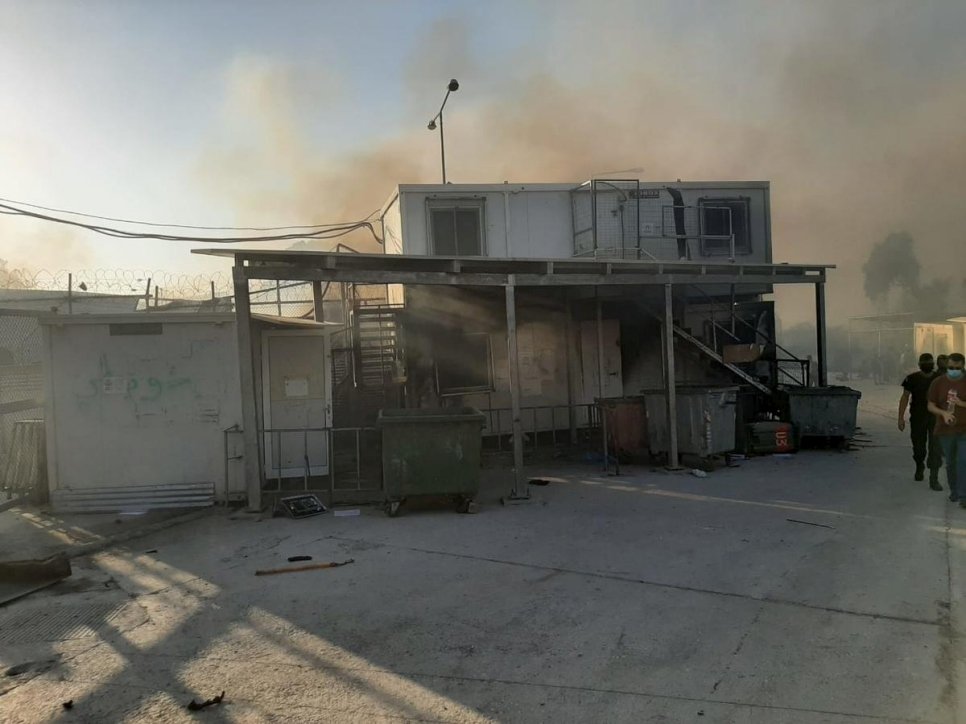UNHCR shocked by fires at Moria asylum center, ramping up support for affected asylum seekers
This is a summary of what was said by UNHCR spokesperson Shabia Mantoo – to whom quoted text may be attributed – at today's press briefing at the Palais des Nations in Geneva.
UNHCR, the UN Refugee Agency, is shocked and saddened at events on Lesvos island this week where a series of fires have destroyed nearly all of Moria asylum center, leaving thousands of men, women and children, without a shelter.
With the initial fire which broke out on the evening of Tuesday 8 September causing extensive damage to thousands of asylum seekers’ shelters and common areas, more fires were reported on the evening of 9 September and yesterday 10 September. The latest fires have affected the adjacent fields next to Moria Reception and Identification Center (RIC), in what is known as “Olive Grove”, destroying what remaining accommodation was still available.
While no casualties have been reported to date, the fires have now left 11,500 asylum seekers, among them 2,200 women and 4,000 children, without adequate shelter, sleeping out in the open over the past few nights in the streets, field and beaches. Among them are vulnerable people, very young children, pregnant women, elderly people and people with disabilities.
UNHCR has been offering support to Greek authorities to help protect and assist asylum seekers affected by the fires, mobilizing resources and aid. UNHCR is providing emergency assistance to ensure people don’t sleep in the open.
The coronavirus pandemic is also adding to an already desperate situation. People tested positive for COVID-19 need to be provided the soonest possible with special care, isolation and treatment arrangements and medical support. UNHCR has advised all those previously staying in the RIC to restrict their movements until temporary solutions are found.
Amid a very challenging and fluid situation, we urge all to exercise restraint and refrain from actions or rhetoric that could heighten tensions.
While authorities are working to find immediate shelter arrangements, UNHCR urges that long-term solutions need to be identified for refugees and asylum seekers in Moria and other sites on the Greek islands. UNHCR has long been highlighting the need to address the situation and conditions for asylum seekers on the Aegean Islands. The incidents at Moria demonstrate the long-standing need to take action to improve living conditions, alleviate overcrowding, improve security, infrastructure and access to services in all five reception centres on the Greek islands.
To respond to pressing protection needs of asylum seekers in Greece, UNHCR continues to advocate for more support including from European countries and EU institutions, such as through expedited relocations of unaccompanied children and other vulnerable people. UNHCR welcomes recent announcements made by European countries to take in unaccompanied minors and families with children from Greece.
For more information on this topic, please contact:
- In Athens, Stella Nanou, [email protected], + 30 69 4458 6037
- In Geneva, Shabia Mantoo, [email protected], +41 79 337 7650
- In New York, Kathryn Mahoney, [email protected], +1 347 443 7646

